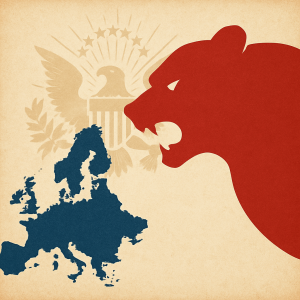Sanctions, yes, of course. The EU could not possibly fail to impose them when it debates its Russian policy next week, because Vladimir Putin has not simply put back in prison the man whom his services had failed to poison. He also slapped the 27 in the face in the person of Josep Borrell, the head of their diplomacy, who had come to Moscow on a good offices mission.
This president who forgets all decency and plays the big shot must be fought back, but it is he who must be punished, not Russia, not the Russians who have nothing to do with it, but the enforcers, those who are obliged to him and the figureheads on whom Vladimir Putin bases his power.
Without the blessing of the Head of State, these leaders of the repressive apparatus and owners of the largest companies would be nothing and certainly not as rich. They owe their influence, authority and money to him. It is therefore they who must be targeted so that their wrongdoings, obviously, do not go unpunished and so that they realise that no, their master is not omnipotent. For them, Vladimir Putin can do anything in Russia, but if the 27 would no longer issue them visas, prevent them from investing in the Union, go through and possibly block their bank accounts in Frankfurt, Luxembourg or Paris, cut them off, in a word, from countries where they like to spend so much money on lavish residences, great luxury and fabulous parties, what could their so powerful protector do?
There, in the Union, he could do nothing more for them, and these people who believe themselves to be untouchable would then discover that, despite having been so useful to them earlier, this president is beginning to harm their businesses, their social life and their personal fortunes. By sanctioning them personally, the Union would make them see that their interest is no longer necessarily linked to the long-term status of a head of state who is eventually wearing himself out and who, above all, isolates them from Europe and the United States by locking Russia into a one-on-one with China.
Slowly but surely, the political situation in Moscow would change and the advantage of these targeted sanctions would be threefold. They would certainly not be unpopular in Russia because the Russians would not suffer. The Kremlin would find it difficult to denounce them without putting the spotlight on fortunes that would not have been created without its protection. Finally, the Union would drive a wedge between Vladimir Putin and the two essential forces in the country: money and the security services, which had brought him to power two decades ago, who had been widely thanked but who today would have nothing to lose by switching horses.
If the money-makers and the security service bosses do not want Vladimir Putin’s wear and tear to wear them down themselves, they must allow a change of team, as they did when they ousted Boris Yeltsin in 1999, and there is more than one way for the European Union to precipitate this change.
There are two because, in addition to these targeted sanctions, the Union can make a public offer to Russia, to all Russians, oligarchs, service people and the urban middle classes, telling them of its readiness to enter into new security and cooperation agreements in which the whole continent would have an interest, the European Union as well as the Russian Federation and the states in between.



